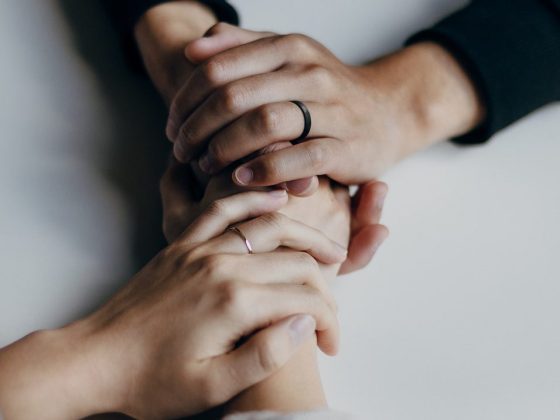Through empathy we come to feel the pain of others, and through compassion we feel the pain of others but are able to handle it.
It is because compassion comes with love, which is the key difference between the two.
According to Merriam-Webster dictionary, empathy is “the action of understanding, being aware of, being sensitive to, and vicariously experiencing the feelings, thoughts and experience of another of either the past or present without having the feelings, thoughts, and experience fully communicated in an objectively explicit manner,” and compassion means the “sympathetic consciousness of others’ distress together with a desire to alleviate it.”
“With compassion, it is as if we step into the other person’s world and feel their experience. If we foster and nurture such a feeling within ourselves, we can then enter a whole other world.”
With compassion, it is as if we step into the other person’s world and feel their experience. If we foster and nurture such a feeling within ourselves, we can then enter a whole other world. However, we are not involved in such a process. Generally, at the ages of thirteen and fourteen, we can fully resonate with other people’s suffering. If we would then receive further education on how to relate to such feelings, then we could bring about immense positive change in the world.
We can teach compassion in ways where people learn how to understand and nurture it more and more. By increasing compassion in society, we can share in other people’s suffering by accepting it partially upon ourselves, and then reach a state where we neutralize suffering.
Moreover, we would not burn out by seemingly taking too much suffering upon ourselves. Instead, our increased compassion and sympathizing would neutralize suffering, allocating it into smaller portions, and bringing relief to others by doing so.
“Shared compassion among all people on earth would lead to a globally-blissful state, which is exactly what we need to achieve. If we fail to increase compassion in human society, then we will encounter greater and greater problems heading into the future.”
Shared compassion among all people on earth would lead to a globally-blissful state, which is exactly what we need to achieve. If we fail to increase compassion in human society, then we will encounter greater and greater problems heading into the future. It is because the human ego continually grows while nature forces us to become more and more tightly interdependent. In other words, without uniting and sharing our suffering, we will be unable to tolerate our increasing connection: we will feel greater and greater pressure upon our ego until it will become unbearable.
According to the wisdom of Kabbalah, compassion holds a broader definition than what is in Merriam-Webster. It divides the vast suffering that exists in reality. Reality consists of one enormous desire to receive that was created, of which we are its parts, and a great light—a force of love, bestowal and connection—needs to fill the desire completely. The more we prepare a compassionate approach upon this desire, i.e. an intention that is not self-aimed, but aimed at loving, giving to and positively connecting to others, then the more we let the light—the positive force of love, bestowal and connection—enter the desire, alleviating our suffering and bringing us to peace and harmony. In other words, the great desire to receive that bases our reality can only be completely fulfilled if our intention is aimed in the direction of benefiting others.
“By learning how to become compassionate, we can accelerate the time it takes for us to achieve balance among each other and with nature. We would then divide the difference between absolute fulfillment and emptiness among every one of us, and we would then be on course to a blissful state: feeling a contradiction, impossibility and inner cry morphing into a new kind of higher pleasure and joy.”
Therefore, by learning how to become compassionate, we can accelerate the time it takes for us to achieve balance among each other and with nature. We would then divide the difference between absolute fulfillment and emptiness among every one of us, and we would then be on course to a blissful state: feeling a contradiction, impossibility and inner cry morphing into a new kind of higher pleasure and joy. In such a state, there is no difference between pain and pleasure because they come together as one. In other words, in a higher level of reality where we are more correctly connected together, pain becomes pleasure because we balance them out.
Pain is given to us in order to invert it to pleasure. The greatest pain, as a result, becomes the greatest pleasure. If we know how to balance these opposites, we end up with a whole new kind of pleasure and sensation of reality.












1 comment
When i have anxiety it is from a traumatic brain injury i get out the torah and study and pray to hashem for help